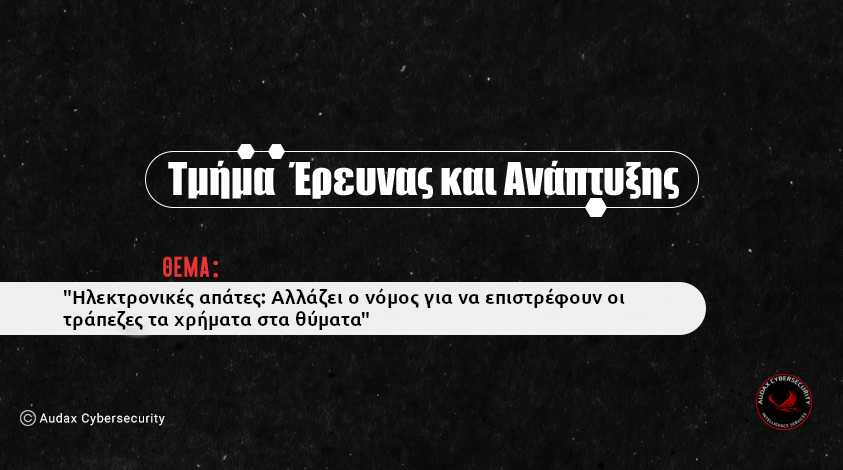The implementation of the actions recently decided between banks, the State, the Bank of Greece and the Hellenic Police to combat the phenomenon that is on the rise internationally and in Greece, along with the explosive growth of digital transactions in recent years, continues.
As for the next steps, which aim to keep citizens in a state of constant vigilance, the second phase of information dissemination begins with television and radio materials, following the relevant decisions of the Task Force. The need for continuous updates is deemed imperative, according to the Task Force's decisions, in order to prevent complacency among citizens and ensure their strict adherence to basic recommendations and guidelines provided by banks and relevant authorities.
Furthermore, significant emphasis is placed on implementing the decision to establish an appropriate institutional and legislative framework, enabling banks to provide substantial assistance to customers who have fallen victim to fraud. Specifically, it is noted that in several cases, banks are unable to proceed with the process of refunding money from fraudulent transactions, even if the corresponding amounts have been frozen, without the consent of the account holder. This limitation arises from the existing legal framework.
There is also ongoing intensification of collaboration between banks and the Hellenic Police, following their recent successes in dismantling international criminal organizations involved in fraud, in cooperation with European law enforcement and judicial authorities.
What are the main forms of online fraud
With the rapid increase of digital transactions observed internationally and in our country in recent years, the number of forms of electronic fraud is simultaneously rising. As emphasized repeatedly in their public statements by relevant banking executives as well as members of the Hellenic Police, citizens should exercise particular caution when conducting their digital transactions and faithfully follow the given instructions.
Traders should never forget that "when we receive messages or e-mails claiming to be from our Bank we pause. We read them carefully keeping in mind that a real bank would never ask for our PIN or password. "Because a pause is all it takes to avoid electronic fraud."
Relevant information material on all forms of fraud can be found on the EUT's website, which has been up since last November on the occasion of the latest cybersecurity awareness campaign in the framework of the European Cyber Security Month.
Informative videos and infographics have been posted on the EETT website with instructions on how to identify and protect against various types of online cyber fraud such as:
- fraudulent phone calls (vishing), smishing ,phishing
- CEO Fraud
- Invoice fraud
- spoofed bank websites
- romance scam
- personal data theft
- investment scams
- online shopping scams
- frauds of alleged technical support
- SIM card fraud
If you have been a victim of online fraud do not hesitate to contact us!

